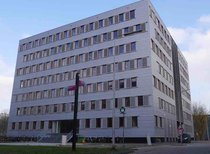Vacancy (COSMOS)
The Software Engineering Research Group (SERG) and the Multimedia Computing Group (MMC) have the following join vacancy:
PhD student in Software Testing and Validation for AI-intense Systems
The Ph.D. position will focus on the research and development of solutions to test and validate AI-intensive systems. AI-intensive systems involve multiple internal stages, pipelines, models, as well as interaction with other non-AI-based components. Often, they also process multimodal data requiring human interpretation. The question of quality assurance for AI thus is more refined than a single evaluation or testing approach, which often is seen today. In this Ph.D. project, we therefore will focus on bridging evaluation and testing methodologies from the software engineering and applied machine learning domains.
This project is a collaboration between the Multimedia Computing (MMC) Group at the Intelligent Systems (INSY) Department, and the Software Engineering Research Group (SERG) at the Software Technology (ST) Department. The INSY and ST departments closely work together in the faculty’s Computer Science research and education.
The Multimedia Computing (MMC) Group conducts research on new methodological and algorithmic concepts for analyzing, interpreting, enriching, modeling, searching and recommending multimedia data available in stand-alone collections or connected in (complex) networked data structures. The work being carried out in the MMC Group encompasses a broad palette of research directions in the domains of multimodal analysis and processing, network data computing and multimedia information systems, with a strong influx of the expertise from the domain of human factors.
The Software Engineering Research Group (SERG) is part of the department of Software Technology, faculty of Electrical Engineering, Mathematics, and Computer Science, and a member of the research school IPA. The main research areas for the group include but are not limited to software analytics, software testing, software quality and maintenance, software evolution and search-based software engineering. The involved researchers have developed numerous techniques to make it easier for software developers to (1) understand, (2) maintain and (3) test existing software systems.
The current PhD position will connect MMC’s research line on validation and validity in multimedia information systems with SERG”s research line on Computational Intelligence for Software Engineering.
Job requirements
- An excellent master’s degree (or equivalent) in computer science. Required: experience in Software Engineering, Software Testing, and Machine Learning. Preferred: experience in Statistics and Multimedia Processing.
- Strong programming skills, ideally demonstrated through contributions to open-source libraries. Required: Java and Python. Preferred: C++.
- Good communication and presentation skills in English.
- Ability to work in a team.
- Commitment to research and engineering.
How to apply?
Are you interested in this vacancy? Please apply before by July 15, 2021 uploading the following documents in the application form:
- A motivation letter, in which you describe your research interests and background and how they relate to the position;
- A succinct curriculum vitae;
- A detailed transcript of university grades;
- A proof of English proficiency;
- A (draft) version of your Master thesis;
- The name and email address of one reference (no recommendation letter is needed at this point).
You can apply online. We will not process applications sent by email and/or post.
Acquisition in response to this vacancy is not appreciated.
Please send your application package to vacancies-eemcs@tudelft.nl no later than November 1. When applying please mention application number TUD00488.
A pre-employment screening can be part of the application procedure.
More information?
For additional information about this vacancy, you can contact:
- dr. Cynthia C. S. Liem, email: c.c.s.liem@tudelft.nl
- dr. Annibale Panichella, email: a.panichella@tudelft.nl
About the research environment
The Software Engineering Research Group (SERG) is part of the department of Software Technology, faculty of Electrical Engineering, Mathematics, and Computer Science, and a member of the research school IPA. The group employs approximately 30 people, comprising full, associate, and assistant professors, lecturers, postdocs, and PhD students. The main research areas for the group include but are not limited to software analytics, software testing, software quality and maintenance, software evolution and search-based software engineering. The involved researchers have developed numerous techniques to make it easier for software developers to (1) understand, (2) maintain and (3) test existing software systems. More information about the group can be found here: https://se.ewi.tudelft.nl
SERG is part of the Department of Software Technology (ST), which comprises research groups working on core computer science and engineering topics. The department is responsible for a large part of the curriculum of the BSc and MSc programmes in Computer Science as well as the MSc programme in Embedded Systems. The department’s research mission is to perform excellent research at an internationally-recognised level in the design, construction and analysis of complex, concurrent and cooperative computer and information systems. Inspiration for the research topics is derived largely from technical ICT problems in industry and society. The Department moved into new office and lab space in 2018.
The Faculty of Electrical Engineering, Mathematics and Computer Science (EEMCS) is known worldwide for its high academic quality and the social relevance of its research programmes. The faculty’s excellent facilities accentuate its international position in teaching and research. Within this interdisciplinary and international setting the faculty employs more than 1100 employees, including about 400 graduate students and 4000 undergraduate students. Together they work on a broad range of technical innovations in the fields of sustainable energy, telecommunications, microelectronics, embedded systems, computer and software engineering, artificial intelligence, interactive multimedia and applied mathematics.
Located in a charming college town, TU Delft is the largest and oldest public technological university in the Netherlands. The university is regularly ranked among the most highly-rated worldwide for engineering and technology. Information about academic careers in the Netherlands and working at TU Delft can be found at www.factcards.nl and www.tudelft.nl/en/about-tu-delft/working-at-tu-delft/coming-to-the-netherlands-tu-delft/.
